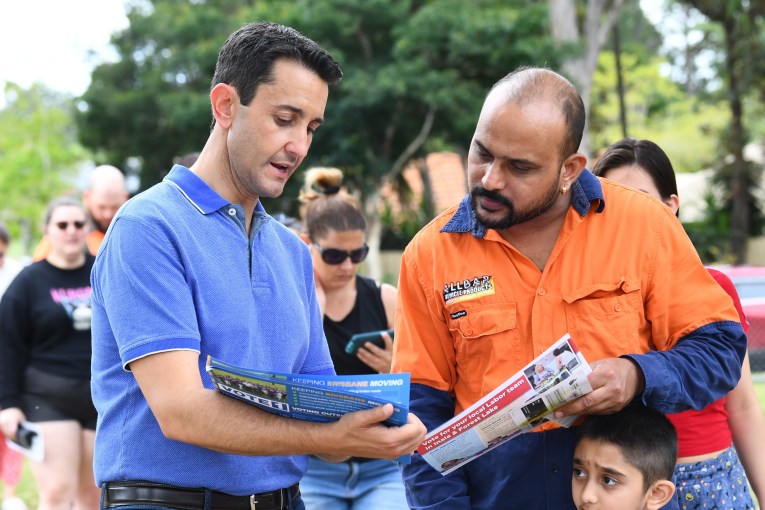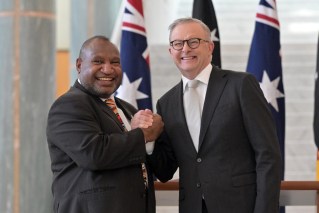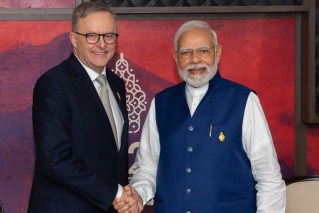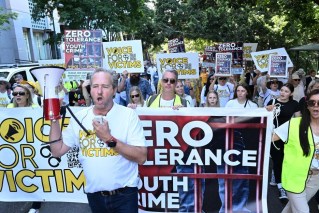Morrison says historic pact with Japan is ‘key plank’ to managing China tensions
Australia and Japan have taken a major step towards signing a long-awaited defence pact which will enable both countries to intensify military cooperation in the face of rising tensions with China.
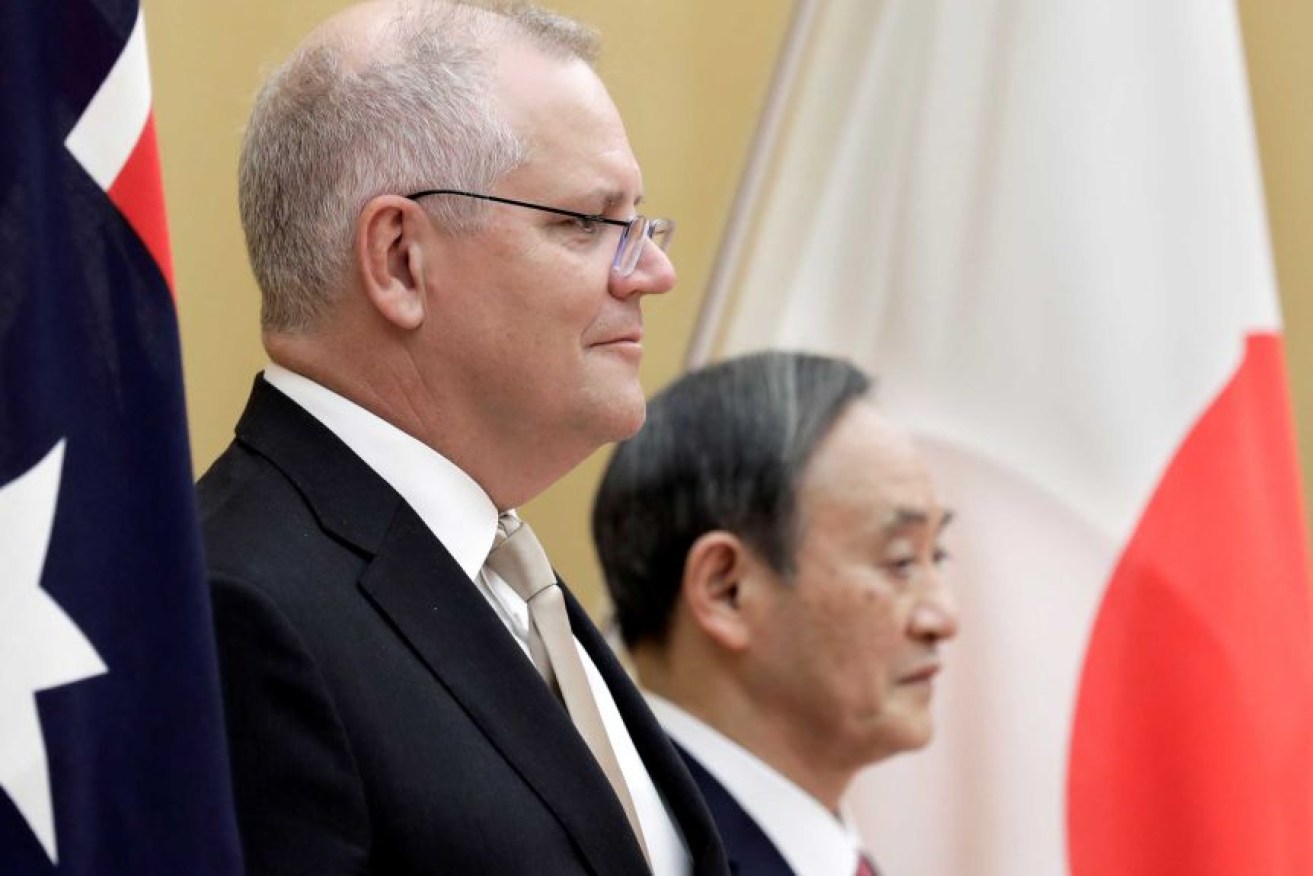
Australian Prime Minister and Japan Prime Minister Yoshihide Suga are on the verge of signing a historic defence pact.(Photo: Pool Via Reuters: Kiyoshi Ota)
Prime Minister Scott Morrison and Japan’s new Prime Minister Yoshihide Suga announced an “in-principle agreement” on the Reciprocal Access Agreement (RAA) after holding their first face-to-face meeting in Tokyo.
Officials have spent six years negotiating the agreement, which will provide a legal and administrative framework for both forces visiting the other country.
It marks a significant milestone for Japan, which has not struck a pact on a foreign military presence since the Status of Forces Agreement it signed with the United States 60 years ago.
Morrison hailed the agreement as a “pivotal moment in the history of Japan-Australia ties”.
“The significance of the RAA cannot be understated,” he said.
“It will form a key plank of Australia’s and Japan’s response to an increasingly challenging security environment in our region amid more uncertain strategic circumstances.”
The Prime Minister is focusing on what he’s called a “very special relationship,” with talks on trade, defence and security all on his agenda in Japan.
Defence officials believe the agreement will help facilitate cooperation between the two countries, including in the increasingly contested waters of the South China Sea and the East China Sea.
In a joint statement released late on Tuesday, the two leaders “expressed serious concerns” about the situation in both seas, and “reconfirmed their strong opposition to any coercive or unilateral attempts to change the status quo and thereby increase tensions in the region”.
China has vast territorial claims in both seas which are disputed by Japan and numerous South-East Asian countries.
In another nod to Beijing, the statement “emphasised the importance of upholding Hong Kong’s democratic processes and institutions”, which includes “the high degree of autonomy set out in the Basic Law and Sino-British Joint Declaration”.
It is also a sign that Japan is increasingly willing to build defence relationships with countries beyond the United States and take a more assertive role in the region.
Japan and Australia have already lifted the tempo of defence cooperation in recent years.
Earlier this month, the two nations joined the United States and India for the Malabar naval exercises.
Morrison said the agreement would see more exercises like Malabar carried out.
“We expect to increase our regional cooperation in many forms — and the Malabar exercises have been conducted together with the US and India and we’d expect to further expand our cooperation in those areas,” he told the media after having dinner with Suga.
